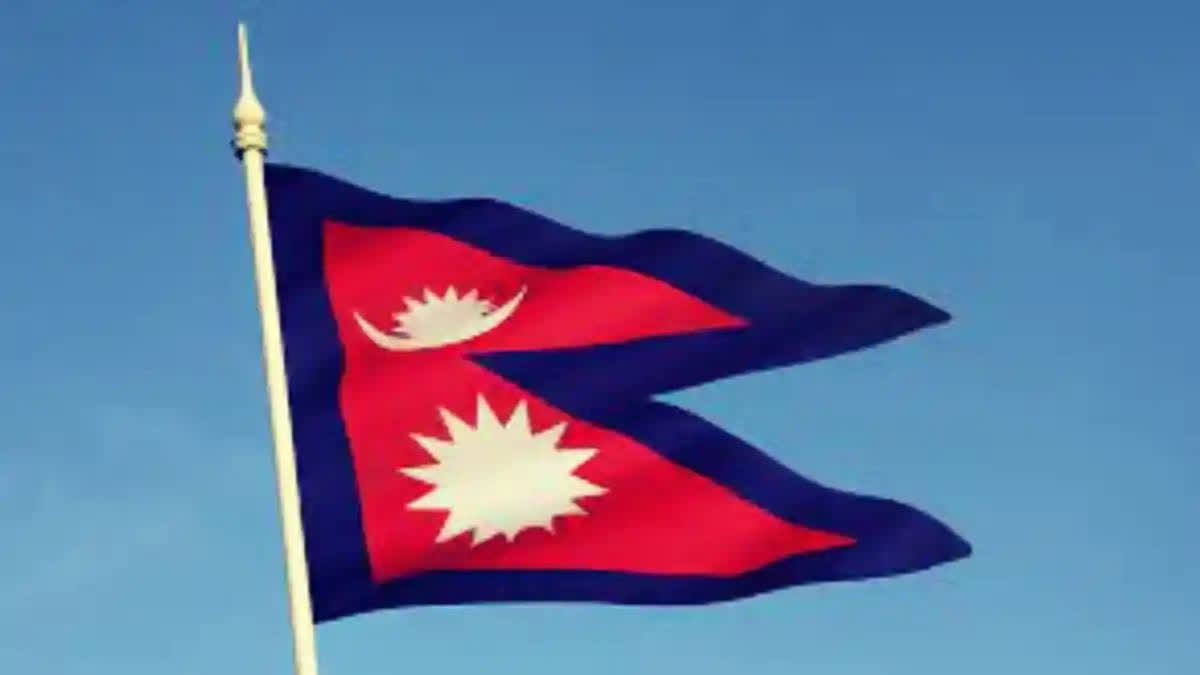New Delhi: In what is the latest manifestation of a campaign that has been brewing in recent times, the Rastriya Prajatantra Party (RPP) of Nepal has demanded that the country be reinstated as a Hindu kingdom and constitutional monarchy be restored.
These were the key demands among a 40-point charter of demands that the RPP submitted to Nepal Prime Minister Pushpa Kamal Dahal on Wednesday, the Kathmandu Post reported. The party also simultaneously announced that it will start a peaceful campaign for the reinstatement of Nepal as a Himalayan kingdom and the restoration of constitutional monarchy.
The RPP leadership met Prime Minister Dahal to submit the charter of demands after hundreds of party activists held rallies in different parts of Kathmandu. “The Rastriya Prajatantra Party will continue with peaceful demonstrations but if the government remains indifferent, it will opt for a strong revolution," the Post report quoted party chairman Rajendra Lingden as saying.
In 2015, Nepal formally transitioned into a secular republic with the enactment of a new constitution. However, as early as 2008, during the inaugural session of the Constituent Assembly, the monarchy was relegated to the past, and Nepal was officially declared a non-Hindu state.
So, what is the RPP and why is it demanding the reinstatement of Nepal as a Hindu kingdom and restoration of constitutional monarchy? The RPP, a political party in Nepal, aligns itself with constitutional monarchism and Hindu nationalism. It was founded in 1990 by former prime ministers, Surya Bahadur Thapa and Lokendra Bahadur Chand before the abolition of monarchy.
The party successfully led two coalition governments in 1997 under the leadership of Thapa and Chand. Additionally, both Thapa and Chand were appointed as prime ministers by then King Gyanendra in the 2000s — Chand in 2002 and Thapa in 2003. Following the 2022 general election, where the RPP secured 14 seats, making it the fifth-largest party in the 275-seat House of Representatives, it became one of the seven national parties officially recognised by the Election Commission.
Despite briefly being part of the ruling coalition after the election, the party shifted to the opposition on February 25, 2023. It is the only political party that has consistently made a pitch for a Hindu state and constitutional monarchy. However, there are several other groups that have been making similar demands in recent times. These include some Hindu groups and former royalists.
According to Nihar R Nayak, a Research Fellow at the Manohar Parrikar Institute of Defence Studies and Analyses and an expert on issues about Nepal, this campaign has been going on for quite some time now.
"The royalists have been making this demands since the abolition of monarchy in 2008," Nayak told ETV Bharat. However, in recent years, some Hindu groups too have been raising these demands. In August 2021, 20 Hindu religious organisations reportedly formed a "united front" at Devhat in Tanahun district and said that they will stage protests demanding restoration of Hindu state.
That same month, a campaign was launched by a group advocating for the reinstatement of the Hindu kingdom. Rookmangud Katawal, a general who commanded the Nepal Army from 2006 to 2009, is spearheading the campaign. Dubbed the "Hindu Rastra Swabhiman Jagaran Abhiyan", the organisers expressed their intention to extend the campaign nationwide, aiming to reinstate Nepal as a Hindu state with a specific emphasis on preserving "identity and culture".
The campaign saw the participation of several prominent pro-Hindu figures like Mathadish of Shankarachayra Math Keshavananda Swami, Pithadish of Shantidham in Kathmandu, Swami Chaturbhuj Acharya, Hanuman ji Maharaj, and co-convener of Hindu Swayamsevak Sangh and former Nepal Police assistant inspector general Kalyan Kumar Timilsina.
"Our campaign is not to establish Hindu fundamentalism in the country… not to isolate and sideline the religious minorities like Muslims and Christians," the Kathmandu Post had quoted Katawal as saying then. "This campaign is simply aimed at restoring the Hindu identity of Nepal."
The Post had cited analysts as saying then that the advocacy for a Hindu state may gain momentum, especially as certain factions within Nepal's political parties, who played a crucial role in the country's transition to a republic, show a growing inclination to return to the previous status. The risk to political achievements has been exacerbated by former Prime Minister KP Sharma Oli. Despite identifying himself as a Communist leader, Oli started expressing sentiments about Hinduism.
In February last year, the ex-monarch of Nepal, Gyanendra Shah, actively participated in a public initiative aimed at reinstating Nepal's former designation as a Hindu Kingdom. Shah inaugurated the 'Let’s save dharma, nation, nationalism, culture, and citizens mega campaign' in Kakarbhitta, located in the eastern Jhapa district of Nepal.
The event drew a large crowd, with attendees expressing support through cheers and applause. The campaign was organised by Durga Prasai, a central committee member of the Communist Party of Nepal (Unified Marxist Leninist) Party, led by Oli. Then again, in November last year, there were demonstrations in Kathmandu with protesters demanding the restoration of the centuries-old monarchy, and also calling for Nepal to be a "Hindu state" once again. These demonstrations were also led by Prasai.
According to Nayak, these protests are being held by anti-democracy groups who believe that the new democratic system in Nepal has failed. "The RPP is trying to popularise these demands," he said. "Hardly 4,000-5,000 people attend these rallies. This will not have any political impact."
Nayak also pointed out that though a section of the Nepali Congress had also made such demands, the party's central working committee rejected these. "Nepali Congress president Sher Bahadur Deuba did not endorse these demands," he said. "And remember, the Nepali Congress is the largest political party in the country."



